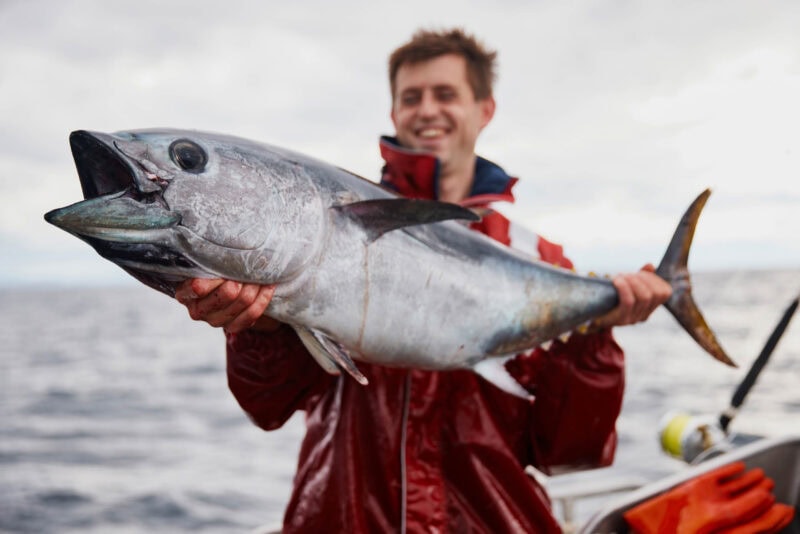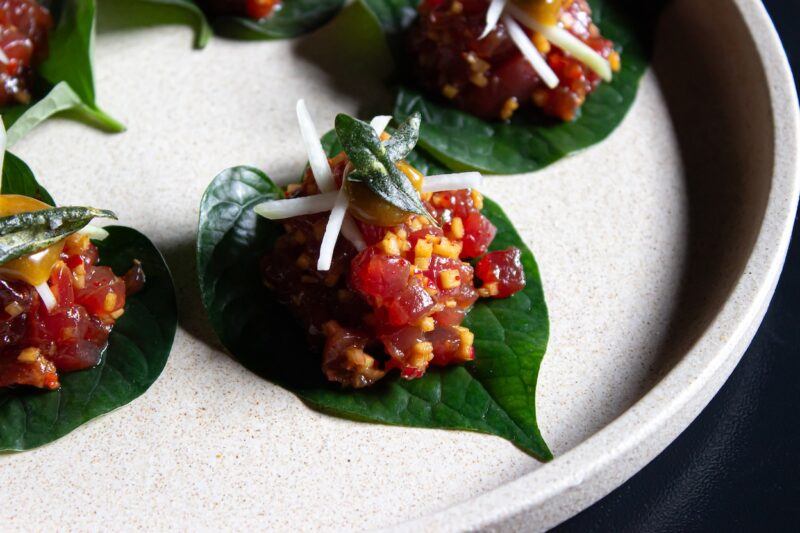Meet a member: Mures Fishing
Born from a chef’s determination to source the freshest local seafood, Mures Tasmania has grown from a single Hobart restaurant into a leading example of sustainable fishing. We spoke with the Tuna Australia member about their business journey, hook-to-plate philosophy, and future directions.
Can you tell us about Mures? How did it start, and what does the business do?
Jill and George Mure established Mures Fish House restaurant in 1973 at Battery Point, Hobart. When they struggled to source quality, fresh, local seafood, George took matters into his own hands and went fishing. Spending three days a week at sea catching fish for his customers and three days in the restaurant working double shifts, George laid the foundations of what we now call our “hook-to-plate” philosophy.
Fifty years on, and now owned by Will and Judy Mure, Mures Tasmania is a vertically integrated Tasmanian family business dedicated to providing fresh, local, sustainable seafood. Mures Fishing is the branch of the business that oversees the operations of our vessels, catch, processing, gourmet products, and wholesale supply.
Mures Tasmania currently incorporates:
- Diana, a 76-foot demersal longlining vessel (named after Will’s grandmother)
- Selkie, a smaller rod-and-reel vessel targeting Southern Bluefin Tuna
- A processing facility in Cambridge, Tasmania
- A range of gourmet seafood products distributed nationally
- A Mures Tasmania wine range
- Two fishmonger retail outlets
- Four seafood venues at Victoria Dock on Hobart’s waterfront
What makes Mures tuna different from others on the market?
Our southern bluefin tuna perfectly embodies Mures’ hook-to-plate ethos.
Caught in the pristine waters of southern Tasmania, each tuna is handled with the utmost care from the moment it is hooked until it reaches our customers.
Because we operate our own vessels, processing facility, delivery fleet, and restaurants, we maintain full control of the tuna’s journey, ensuring customers receive the highest quality fish possible.
This approach also allows us to share the story behind each catch—passing on details of individual fishing trips and even particular fish. Our hook-to-plate philosophy is both a celebration of this remarkable product and of the Tasmanian environment that makes it possible.

How do you ensure your fishing practices are beneficial for both people and the planet?
Sustainability has been central to Mures since the beginning, with Jill and George campaigning for ecologically responsible fishing methods as early as 1973.
Today, we are fortunate to work in an industry where sustainability and product quality go hand in hand.
All our fish are hook-caught, resulting in minimal bycatch.
Operating smaller vessels gives us greater control over catch quality, ensuring fish are landed in peak condition and utilised to their full potential.
Director Will Mure also serves on one of AFMA’s management advisory committees, contributing to discussions on quota setting and fisheries management. His long-standing involvement has supported the development of more efficient and sustainable practices for managing Australia’s fish resources.
We are equally passionate about maximising the use of every fish, incorporating frames, offcuts, skin, and more into our gourmet seafood range. This approach reduces waste and allows customers to experience products they may not normally try.
Why is MSC certification important to Mures and your customers?
At Mures, we believe strongly in independent, science-based oversight of fisheries. This provides our customers with confidence in the products they choose, whether purchasing from our fishmongers or dining in our restaurants.
Transparency is central to our approach, with clear country-of-origin labelling and the use of standard fish names.
MSC certification helps our customers make informed choices, supports recognition of responsible practices, and provides a platform for conversations around sustainability. It also highlights the global efforts being made to protect our oceans for future generations.

Tuna tartare betel leaf.
What’s next for Mures — any exciting projects or plans?
We are always seeking ways to refine our fishing practices, strengthen the connection between consumers and their seafood, and promote education around sustainability.
Recently, we launched the Southern Bluefin Carving Ceremony, a unique winter dining experience. Guests begin with a short film about where and how we fish, before a whole Southern Bluefin Tuna is brought into the restaurant and carved before their eyes. The tuna is then transformed into a four-course degustation by our culinary team, giving guests an intimate appreciation of this extraordinary species.
Looking ahead, we are developing new additions to our gourmet product range to showcase the versatility of Southern Bluefin Tuna.
What's your favourite tuna or swordfish dish or recipe?
One of our favourites is Tuna Tartare Betel Leaf, created by Mures Executive Chef Stefan Shroder. The dish highlights the freshness of the tuna while incorporating sea urchin, a species that is threatening Tasmanian kelp beds due to warming waters. By pairing tuna with sea urchin, the dish not only delivers incredible flavour but also supports sustainable fishing and kelp conservation through urchin harvesting.
Cook like a chef: recipe for Tuna Tartare Betel Leaf.